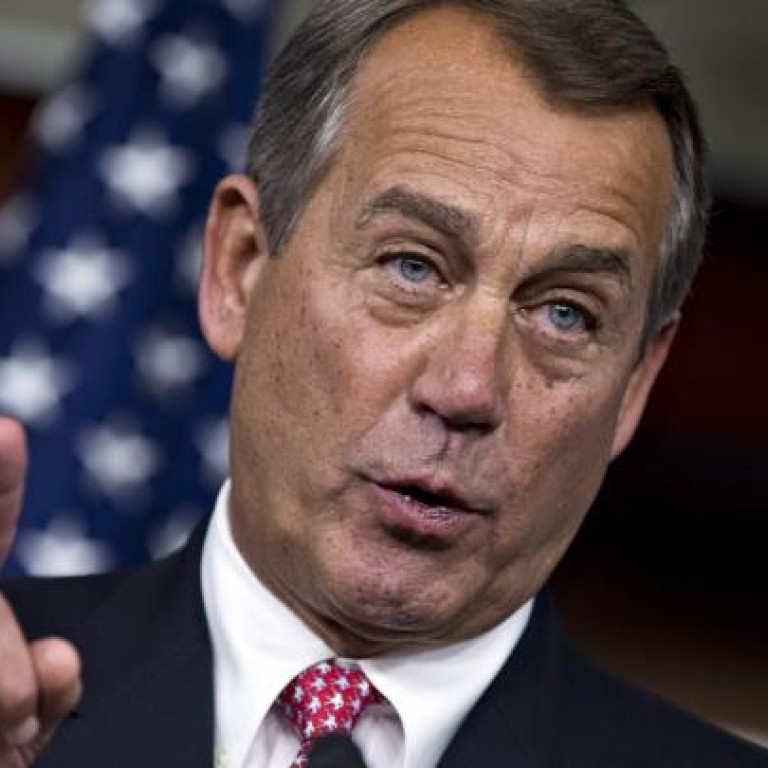
Boehner offers tax rise on wealthy, in sign of movement on fiscal cliff
House Republican leader had vowed not to accept tax increases in a deal to avoid US 'fiscal cliff'; while Obama rejects offer, it is sign of movement
Republican leader of the US House of Representatives John Boehner has offered to raise income tax rates on households earning more than US$1 million a year in exchange for containing the cost of federal entitlement programmes, as part of a deal with President Barack Obama to cut the federal deficit.

Brendan Buck, the Ohio Republican's spokesman, declined to comment on the offer.
However Obama, who has insisted tax rates rise on household incomes exceeding US$250,000 a year, didn't accept the offer, said one of the people, who asked for anonymity to talk about the private negotiations, which are continuing.
Even so, it marks movement in negotiations as they close in on a December 31 deadline, because Boehner has long insisted that he won't accept any increase in income tax rates. The president has refused to discuss a major overhaul of costly entitlements until Boehner agrees to include a rate increase on upper-income taxpayers.
While Democratic leaders united behind Obama following last month's election, earlier this year Nancy Pelosi, the House Democratic leader, and Senator Charles Schumer, the third-ranking Democrat, both advocated an increase on earners making more than US$1 million a year.
Earlier, Obama also reduced his demand for revenue from tax increases to US$1.4 trillion from US$1.6 trillion as both sides inched closer to a possible compromise on the biggest stumbling block to a deal.
Lawmakers said an agreement on a framework by early this week in order to move legislation through Congress before the Christmas holiday.
Boehner, in a US$2.2 trillion deficit-cutting plan he offered earlier this month, proposed ways to trim entitlements. They included a new inflation yardstick - the so-called chained consumer price index - to reduce cost-of-living increases in social security, as well as raising the Medicare eligibility age.
Other Republicans have also advocated means testing, or raising premiums or co-payments for wealthier recipients. Democrats have campaigned as the champions of safety-net programs for the poor and elderly. Senate Democratic leader Harry Reid has repeatedly said that social security is off the table in debt-deal talks.
Boehner and Obama still disagree on whether a year-end deal should include an increase in the federal government's debt limit and fresh programs to boost the economy.
If Congress doesn't act, tax rates for income at all levels would rise next month, along with taxes on estates, capital gains and dividends.
Republicans have begun to consider a fall-back plan that is designed to force deficit-reduction action early next year, when the need for congressional approval of a debt limit increase would put pressure on the Obama administration.
